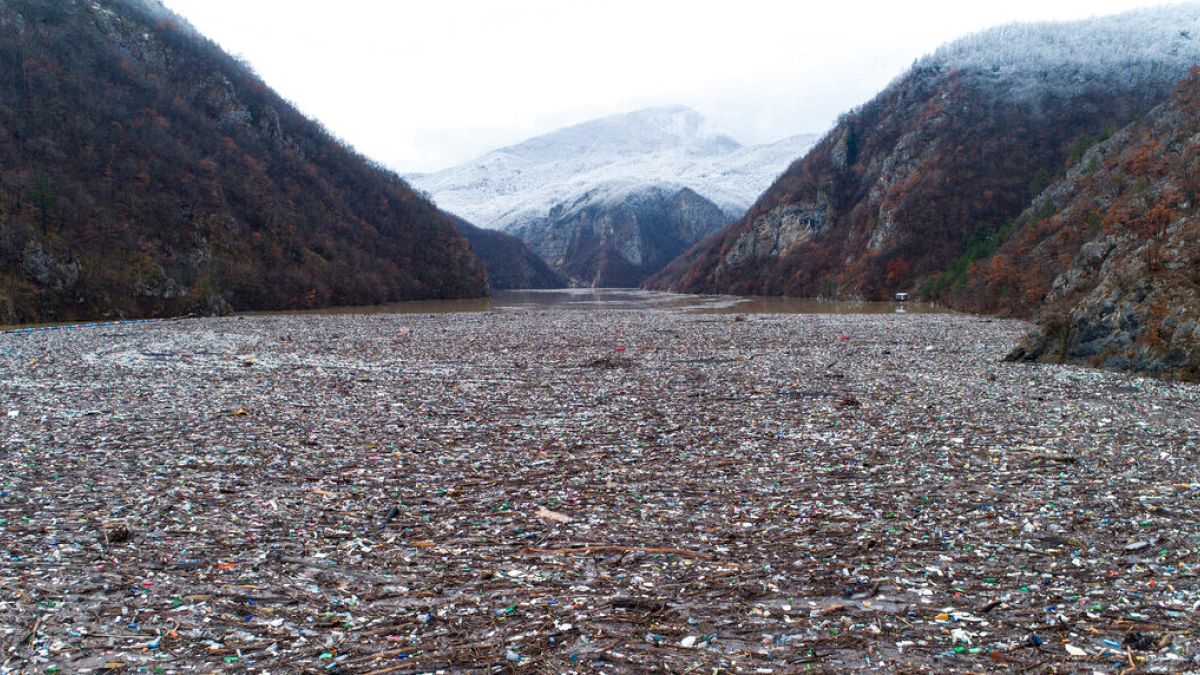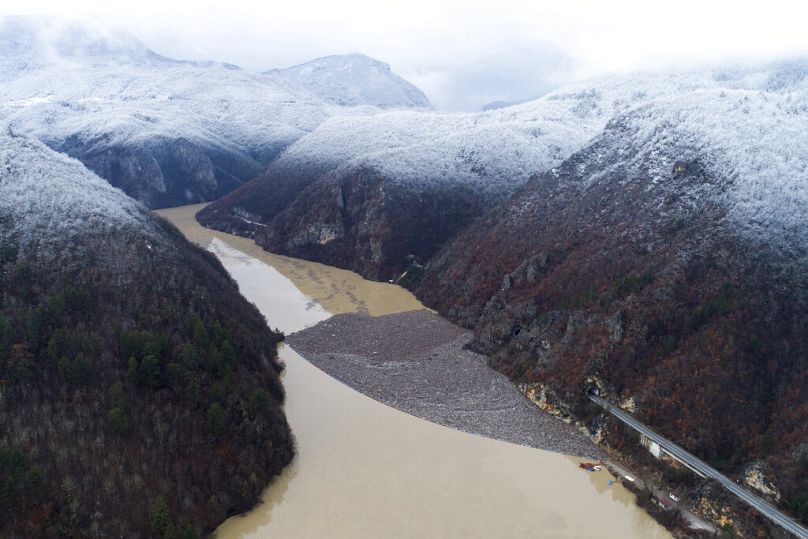Some 10,000 cubic metres of plastic bottles, rusty barrels, used tires, household appliances and driftwood are choking Bosnia's Drina River.
A river in the Balkans, known for its stunning natural beauty, has been transformed into a giant floating rubbish heap, amid a spell of bad weather, worsened by long-running mismanagement.
Tonnes of plastic bottles, rusty barrels, used tires, household appliances, driftwood and other waste have piled up behind a barrier in the Drina River in Bosnia-Herzegovina, which snakes through forested hills.
Much of this rubbish was dumped in poorly regulated riverside landfills or directly into the waterways that flow across three countries in the Balkans, accumulating behind the fencing as it flows downstream.
The barrier installed by a Bosnian hydroelectric plant, a few kilometres upstream from its dam near Visegrad, a city in eastern Bosnia that has unwillingly been turned into a waste site, local environmental activists complain.
Heavy rain and unseasonably warm weather over the past week have caused many waterways in Bosnia, Serbia and Montenegro to overflow, flooding near-by areas and forcing scores of people from their homes.
Dejan Furtula of the environmental group Eko Centar Visegrad said “the huge inflow of garbage” was not stopping, despite torrential rainfall and floods subsiding.
The Drina River runs 346 kilometres from the mountainous northwestern Montenegro through Serbia and Bosnia. Many of its tributaries are known for their emerald colour and breath-taking scenery.
Some 10,000 cubic meters of waste are estimated to have amassed behind the Drina River's rubbish barrier in recent days, Furtula said.
The same amount was pulled in recent years from the river.
'Huge environmental and health hazard'
Cleaning up the waste is not the end of the issue.
Removing the rubbish takes on average up to six months. But it ends up at a local landfill in Visegrad, which Furtula said lacks even the capacity to handle the city’s own waste.
“The fires on the landfill site are always burning,” he said, calling the conditions there “not just a huge environmental and health hazard, but also a big embarrassment for all of us.”
Decades after the devastating 1990s wars following the breakup of Yugoslavia, the Balkans lag behind the rest of Europe both economically and with regard to environmental protection.
The countries have made little progress in building effective, environmentally sound waste disposal systems, despite seeking EU membership and adopting some of the bloc's laws and regulations.
Unauthorised waste dumps dot hills and valleys throughout the region, while rubbish litters roads and plastic bags adorn trees.
Beside river pollution, many countries in the western Balkans have other environmental woes.
One of the most pressing is the extremely high level of air pollution affecting a number of cities in the region.
“People need to wake up to problems like this," Visegrad resident Rados Brekalovic said.


